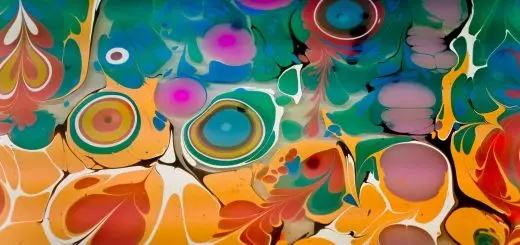Mythical Animals in Slavic Culture: Zmey Gorynych and Others

Looking for more amazing products? Check out our online store and explore our collection here! Happy shopping!
Before diving in, please note: This post is for informational purposes only. If you’d like to know more about how we approach topics, feel free to check out our friendly Disclaimer Page.
Hey there, amazing readers! 
We’re committed to delivering quality posts, and your support (even just sticking around despite the ads) means everything to us. So, bear with us, and thanks for helping us keep the good vibes rolling. Now, on to the fun stuff!
TRANSLATE BUTTON AT THE END OF THE ARTICLE
Mythical Animals in Slavic Culture
Slavic mythology is rich with a diverse array of mythical creatures that have fascinated people for centuries.
These creatures range from fearsome dragons to benevolent house spirits, each playing a unique role in the folklore of the Slavic people.
Among these mythical animals, some stand out for their intriguing stories and symbolism.
From the three-headed dragon Zmey Gorynych to the enigmatic witch Baba Yaga, these mythical creatures are deeply woven into the fabric of Slavic culture and continue to capture the imagination of people around the world.
Introduction to Slavic Mythology
Slavic mythology encompasses the beliefs, rituals, and folklore of the Slavic people, who inhabited Eastern Europe for centuries.
These myths and stories were passed down orally through generations, shaping the worldview of the Slavic people and influencing their cultural practices.
The mythology is filled with a diverse pantheon of gods, spirits, and mythical creatures that embody various aspects of nature, human emotions, and societal values.
These mythical beings are often depicted as both whimsical and terrifying, reflecting the dualities of the human experience.
Zmey Gorynych: The Three-Headed Dragon
Zmey Gorynych is a prominent figure in Slavic mythology, known as the three-headed dragon that terrorizes the land.
This fearsome creature is said to breathe fire and possess immense strength, making it a formidable opponent for any hero brave enough to face it.
Legends surrounding Zmey Gorynych often involve daring warriors and cunning tactics to defeat the dragon and save the kingdom from its wrath.
The symbolism of Zmey Gorynych is multifaceted, representing the struggles of humanity against powerful forces and the triumph of good over evil.
Baba Yaga: The Mysterious Witch
Baba Yaga is one of the most enigmatic figures in Slavic mythology, often portrayed as a mysterious and powerful witch who lives in a hut that stands on chicken legs.
This eccentric character is both feared and revered, as she possesses great wisdom and knowledge of the natural world.
Baba Yaga is known to test those who seek her help, challenging them to prove their worthiness through tasks and riddles.
Despite her intimidating exterior, Baba Yaga is also seen as a guardian of the forest and a protector of the natural order.
Domovoi: The House Spirit
Domovoi is a benevolent house spirit in Slavic folklore, believed to protect the home and its inhabitants.
This friendly creature is said to bring good fortune to those who treat it with respect and kindness, but it can also become mischievous if neglected or mistreated.
Domovoi is often depicted as a small, bearded man wearing a peasant’s tunic, who watches over the household and ensures its well-being.
It is customary to leave offerings for Domovoi to appease the spirit and maintain harmony within the home.
Rusalka: The Water Nymph
Rusalka is a water nymph in Slavic mythology, known for her ethereal beauty and captivating voice.
These mystical beings are said to reside in rivers, lakes, and ponds, where they lure unsuspecting travelers with their enchanting songs.
Rusalkas are often depicted as vengeful spirits who seek to drown those who cross their path, but they can also be benevolent and offer protection to those who show them kindness.
The allure of the Rusalka embodies the fragile balance between life and death, beauty and danger.
Leshy: The Forest Guardian
Leshy is a forest guardian in Slavic folklore, responsible for protecting the woodlands and its inhabitants.
This mythical creature is known to be a shapeshifter, often appearing as a tall, humanoid figure with green eyes and a long beard.
Leshy is a powerful being that commands the animals and spirits of the forest, ensuring the balance of nature is maintained.
Despite its intimidating presence, Leshy is not inherently malicious and can be appeased through offerings and respect for the natural world.
Kikimora: The Domestic Spirit
Kikimora is a domestic spirit in Slavic mythology, believed to inhabit the hearth and the kitchen of the home.
This mischievous creature is known to cause trouble for those who neglect their household duties or mistreat their family.
Kikimora is often depicted as a small, haggard woman with disheveled hair and a penchant for mischief.
To appease Kikimora, one must maintain a clean and orderly home, show respect for family traditions, and offer small tokens of appreciation for her presence.
Simargl: The Winged Lion
Simargl is a mythical creature in Slavic folklore, often depicted as a winged lion with a fierce demeanor.
This powerful being is said to guard the gates of the underworld and protect the realm of the dead.
Simargl is a symbol of strength and courage, embodying the warrior spirit of the Slavic people.
Legends surrounding Simargl often involve epic battles and heroic feats, as the winged lion defends the boundaries between the living and the dead.
Alkonost: The Half-Bird Half-Woman
Alkonost is a mythical creature in Slavic mythology, known as a half-bird half-woman being with a hauntingly beautiful voice.
This mysterious creature is said to live near the sea and sing enchanting melodies that lure sailors to their doom.
Alkonost is a symbol of temptation and the dangers of succumbing to one’s desires.
Despite her alluring presence, Alkonost is also associated with transformation and rebirth, as she guides lost souls to the afterlife with her mesmerizing songs.
Veles: The God of Cattle and Wealth
Veles is a prominent deity in Slavic mythology, known as the god of cattle, wealth, and the underworld.
This powerful being is often depicted as a horned serpent or a bear, symbolizing the connection between the natural world and the spiritual realm.
Veles is associated with fertility, prosperity, and abundance, making him a revered figure among the Slavic people.
As the god of the underworld, Veles also plays a role in guiding the souls of the deceased to the afterlife, ensuring a peaceful transition for the departed.
Conclusion: Enduring Fascination with Slavic Mythology
The mythical animals of Slavic culture continue to captivate people around the world with their rich symbolism and timeless tales.
From the three-headed dragon Zmey Gorynych to the mysterious witch Baba Yaga, these creatures embody the complexities of human nature and the mysteries of the natural world.
As we delve into the realm of Slavic mythology, we uncover a tapestry of legends and folklore that offer insights into the beliefs, values, and fears of the Slavic people.
The enduring fascination with these mythical animals speaks to the universal appeal of storytelling and the enduring power of myth in shaping our understanding of the world.
Slavic mythology invites us to explore the depths of our imagination and embrace the wonders of the unknown.

The Enlightenment Journey is a remarkable collection of writings authored by a distinguished group of experts in the fields of spirituality, new age, and esoteric knowledge.
This anthology features a diverse assembly of well-experienced authors who bring their profound insights and credible perspectives to the forefront.
Each contributor possesses a wealth of knowledge and wisdom, making them authorities in their respective domains.
Together, they offer readers a transformative journey into the realms of spiritual growth, self-discovery, and esoteric enlightenment.
The Enlightenment Journey is a testament to the collective expertise of these luminaries, providing readers with a rich tapestry of ideas and information to illuminate their spiritual path.
Our Diverse Expertise
While our primary focus is on spirituality and esotericism, we are equally passionate about exploring a wide range of other topics and niches 

To ensure we provide the most accurate and valuable insights, we collaborate with trusted experts in their respective domains 
Our blog originally focused on spirituality and metaphysics, but we’ve since expanded to cover a wide range of niches. Don’t worry—we continue to publish a lot of articles on spirituality! Frequently visit our blog to explore our diverse content and stay tuned for more insightful reads.
Hey there, amazing reader! 
Check out our store here and take a peek at some of our featured products below! Thanks for being awesome!











